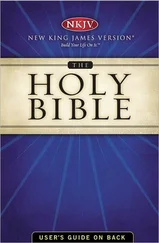18 The levitical priests, the whole tribe of Levi, shall have no allotment or inheritance within Israel. They may eat the sacrifices that are the LORD’s portion[ 44] 2but they shall have no inheritance among the other members of the community; the LORd is their inheritance, as he promised them.
3 This shall be the priests’ due from the people, from those offering a sacrifice, whether an ox or a sheep: they shall give to the priest the shoulder, the two jowls, and the stomach. 4The first fruits of your grain, your wine, and your oil, as well as the first of the fleece of your sheep, you shall give him. 5For the LORD your God has chosen Levi[ 45] out of all your tribes, to stand and minister in the name of the LORD, him and his sons for all time.
6 If a Levite leaves any of your towns, from wherever he has been residing in Israel, and comes to the place that the LORD will choose (and he may come whenever he wishes), 7then he may minister in the name of the LORD his God, like all his fellow-Levites who stand to minister there before the LORD. 8They shall have equal portions to eat, even though they have income from the sale of family possessions.[ 44]
9 When you come into the land that the LORD your God is giving you, you must not learn to imitate the abhorrent practices of those nations. 10No one shall be found among you who makes a son or daughter pass through fire, or who practices divination, or is a soothsayer, or an augur, or a sorcerer, 11or one who casts spells, or who consults ghosts or spirits, or who seeks oracles from the dead. 12For whoever does these things is abhorrent to the LORD; it is because of such abhorrent practices that the LORD your God is driving them out before you. 13You must remain completely loyal to the LORD your God. 14Although these nations that you are about to dispossess do give heed to soothsayers and diviners, as for you, the LORD your God does not permit you to do so.
15 The LORD your God will raise up for you a prophet[ 46] like me from among your own people; you shall heed such a prophet.[ 47] 16This is what you requested of the LORD your God at Horeb on the day of the assembly when you said: “If I hear the voice of the LORD my God any more, or ever again see this great fire, I will die.” 17Then the LORD replied to me: “They are right in what they have said. 18I will raise up for them a prophet[ 46] like you from among their own people; I will put my words in the mouth of the prophet,[ 48] who shall speak to them everything that I command. 19Anyone who does not heed the words that the prophet[ 49] shall speak in my name, I myself will hold accountable. 20But any prophet who speaks in the name of other gods, or who presumes to speak in my name a word that I have not commanded the prophet to speak—that prophet shall die.” 21You may say to yourself, “How can we recognize a word that the LORD has not spoken?” 22If a prophet speaks in the name of the LORD but the thing does not take place or prove true, it is a word that the LORD has not spoken. The prophet has spoken it presumptuously; do not be frightened by it.
19 When the LORD your God has cut off the nations whose land the LORD your God is giving you, and you have dispossessed them and settled in their towns and in their houses, 2you shall set apart three cities in the land that the LORD your God is giving you to possess. 3You shall calculate the distances[ 50] and divide into three regions the land that the LORD your God gives you as a possession, so that any homicide can flee to one of them.
4 Now this is the case of a homicide who might flee there and live, that is, someone who has killed another person unintentionally when the two had not been at enmity before: 5Suppose someone goes into the forest with another to cut wood, and when one of them swings the ax to cut down a tree, the head slips from the handle and strikes the other person who then dies; the killer may flee to one of these cities and live. 6But if the distance is too great, the avenger of blood in hot anger might pursue and overtake and put the killer to death, although a death sentence was not deserved, since the two had not been at enmity before. 7Therefore I command you: You shall set apart three cities.
8 If the LORD your God enlarges your territory, as he swore to your ancestors—and he will give you all the land that he promised your ancestors to give you, 9provided you diligently observe this entire commandment that I command you today, by loving the LORD your God and walking always in his ways—then you shall add three more cities to these three, 10so that the blood of an innocent person may not be shed in the land that the LORD your God is giving you as an inheritance, thereby bringing bloodguilt upon you.
THE SMALLNESS OF OUR LOVE FOR GOD
It is probably impossible to love any human being simply “too much.” We may love him too much in proportion to our love for God; but it is the smallness of our love for God, not the greatness of our love for the man, that constitutes the inordinacy. . . . But the question whether we are loving God or the earthly Beloved “more” is not, so far as concerns our Christian duty, a question about the comparative intensity of two feelings. The real question is, which (when the alternative comes) do you serve, or choose, or put first. To which claim does your will, in the last resort, yield?
—from The Four Loves
For reflection Deuteronomy 19:9
11 But if someone at enmity with another lies in wait and attacks and takes the life of that person, and flees into one of these cities, 12then the elders of the killer’s city shall send to have the culprit taken from there and handed over to the avenger of blood to be put to death. 13Show no pity; you shall purge the guilt of innocent blood from Israel, so that it may go well with you.
14 You must not move your neighbor’s boundary marker, set up by former generations, on the property that will be allotted to you in the land that the LORD your God is giving you to possess.
15 A single witness shall not suffice to convict a person of any crime or wrongdoing in connection with any offense that may be committed. Only on the evidence of two or three witnesses shall a charge be sustained. 16If a malicious witness comes forward to accuse someone of wrongdoing, 17then both parties to the dispute shall appear before the LORD, before the priests and the judges who are in office in those days, 18and the judges shall make a thorough inquiry. If the witness is a false witness, having testified falsely against another, 19then you shall do to the false witness just as the false witness had meant to do to the other. So you shall purge the evil from your midst. 20The rest shall hear and be afraid, and a crime such as this shall never again be committed among you. 21Show no pity: life for life, eye for eye, tooth for tooth, hand for hand, foot for foot.
20 When you go out to war against your enemies, and see horses and chariots, an army larger than your own, you shall not be afraid of them; for the LORD your God is with you, who brought you up from the land of Egypt. 2Before you engage in battle, the priest shall come forward and speak to the troops, 3and shall say to them: “Hear, O Israel! Today you are drawing near to do battle against your enemies. Do not lose heart, or be afraid, or panic, or be in dread of them; 4for it is the LORD your God who goes with you, to fight for you against your enemies, to give you victory.” 5Then the officials shall address the troops, saying, “Has anyone built a new house but not dedicated it? He should go back to his house, or he might die in the battle and another dedicate it. 6Has anyone planted a vineyard but not yet enjoyed its fruit? He should go back to his house, or he might die in the battle and another be first to enjoy its fruit. 7Has anyone become engaged to a woman but not yet married her? He should go back to his house, or he might die in the battle and another marry her.” 8The officials shall continue to address the troops, saying, “Is anyone afraid or disheartened? He should go back to his house, or he might cause the heart of his comrades to melt like his own.” 9When the officials have finished addressing the troops, then the commanders shall take charge of them.
Читать дальше












